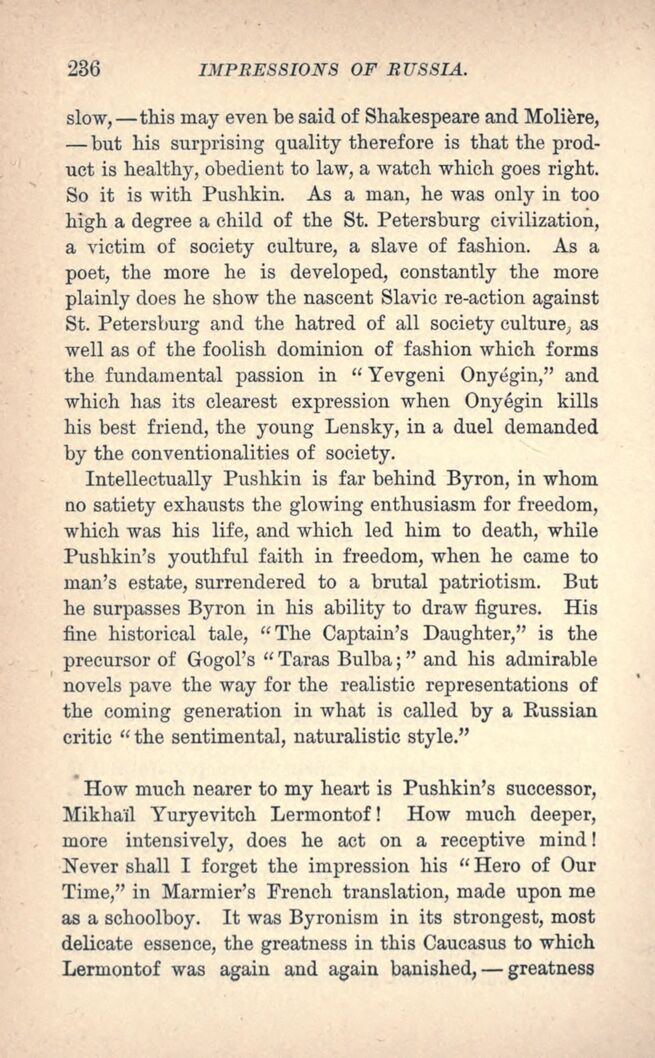
Full resolution (JPEG) - On this page / på denna sida - Impressions of Russian Literature - III

<< prev. page << föreg. sida << >> nästa sida >> next page >>
Below is the raw OCR text
from the above scanned image.
Do you see an error? Proofread the page now!
Här nedan syns maskintolkade texten från faksimilbilden ovan.
Ser du något fel? Korrekturläs sidan nu!
This page has been proofread at least once.
(diff)
(history)
Denna sida har korrekturlästs minst en gång.
(skillnad)
(historik)
slow, — this may even be said of Shakespeare and Molière,
— but his surprising quality therefore is that the
product is healthy, obedient to law, a watch which goes right.
So it is with Pushkin. As a man, he was only in too
high a degree a child of the St. Petersburg civilization,
a victim of society culture, a slave of fashion. As a
poet, the more he is developed, constantly the more
plainly does he show the nascent Slavic re-action against
St. Petersburg and the hatred of all society culture; as
well as of the foolish dominion of fashion which forms
the fundamental passion in “Yevgeni Onyégin,” and
which has its clearest expression when Onyégin kills
his best friend, the young Lensky, in a duel demanded
by the conventionalities of society.
Intellectually Pushkin is far behind Byron, in whom
no satiety exhausts the glowing enthusiasm for freedom,
which was his life, and which led him to death, while
Pushkin’s youthful faith in freedom, when he came to
man’s estate, surrendered to a brutal patriotism. But
he surpasses Byron in his ability to draw figures. His
fine historical tale, “The Captain’s Daughter,” is the
precursor of Gogol’s “Taras Bulba;” and his admirable
novels pave the way for the realistic representations of
the coming generation in what is called by a Russian
critic “the sentimental, naturalistic style.”
How much nearer to my heart is Pushkin’s successor,
Mikhaïl Yuryevitch Lermontof! How much deeper,
more intensively, does he act on a receptive mind!
Never shall I forget the impression his “Hero of Our
Time,” in Marmier’s French translation, made upon me
as a schoolboy. It was Byronism in its strongest, most
delicate essence, the greatness in this Caucasus to which
Lermontof was again and again banished, — greatness
<< prev. page << föreg. sida << >> nästa sida >> next page >>